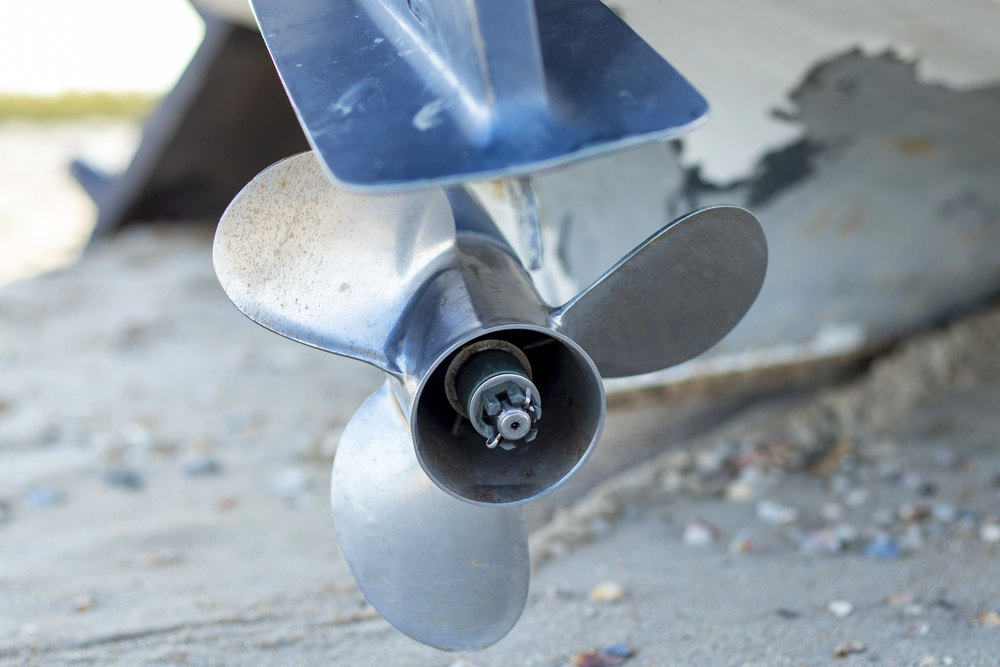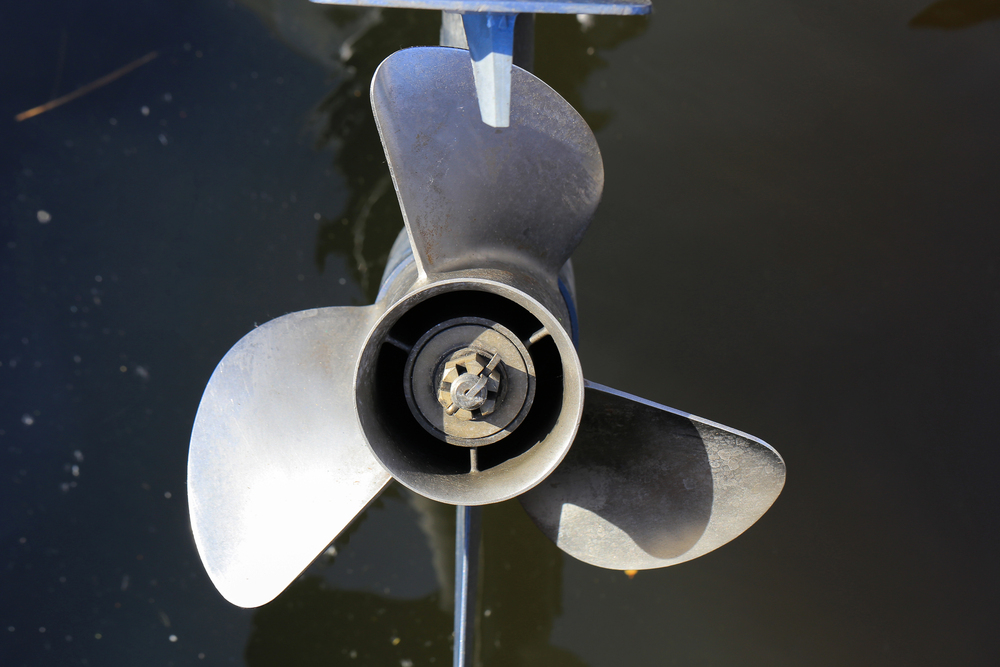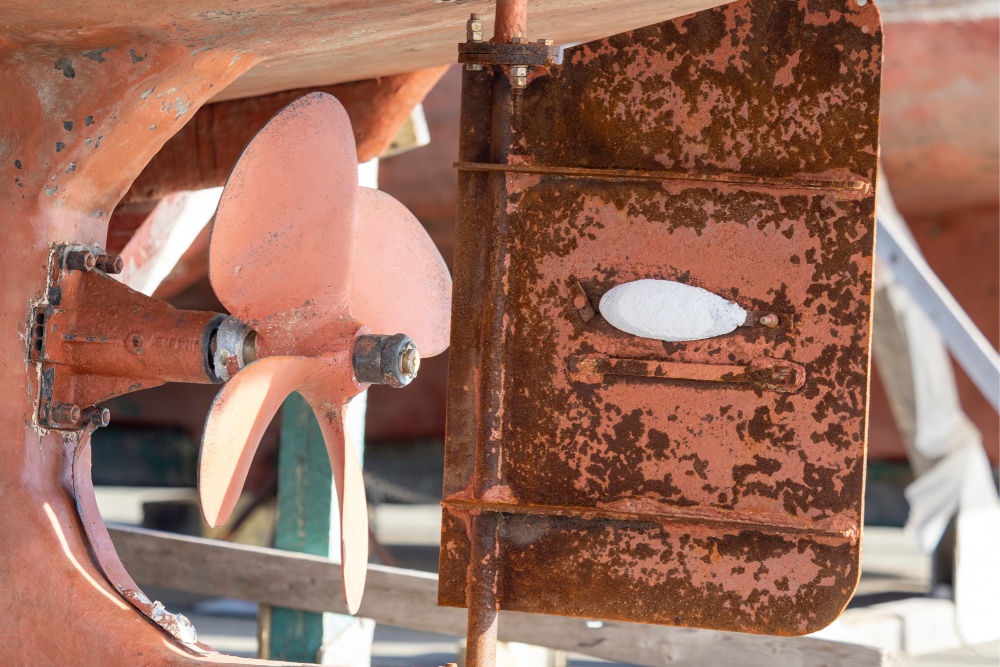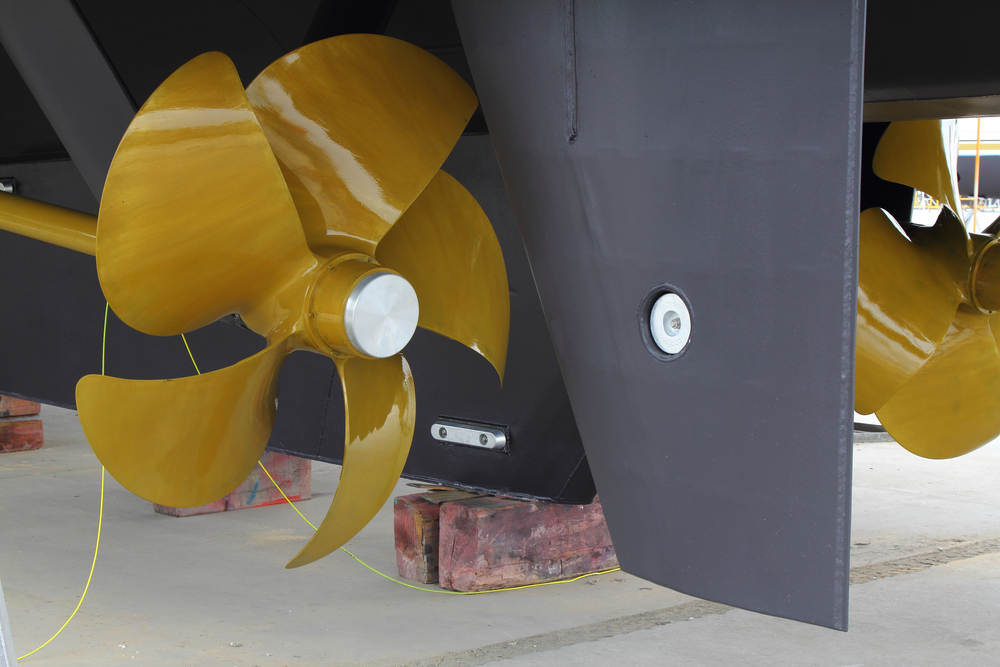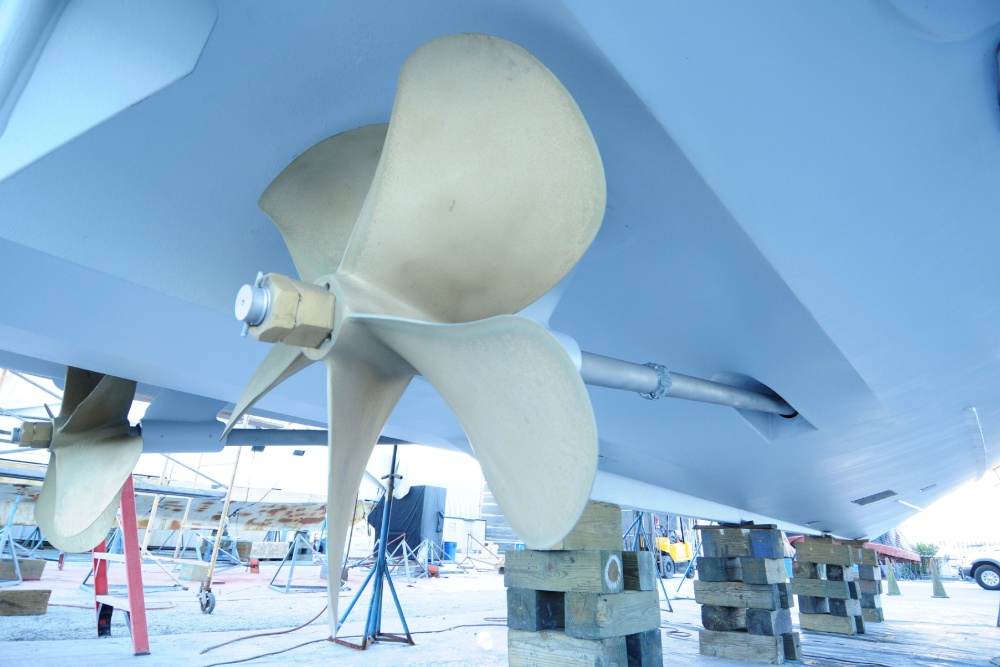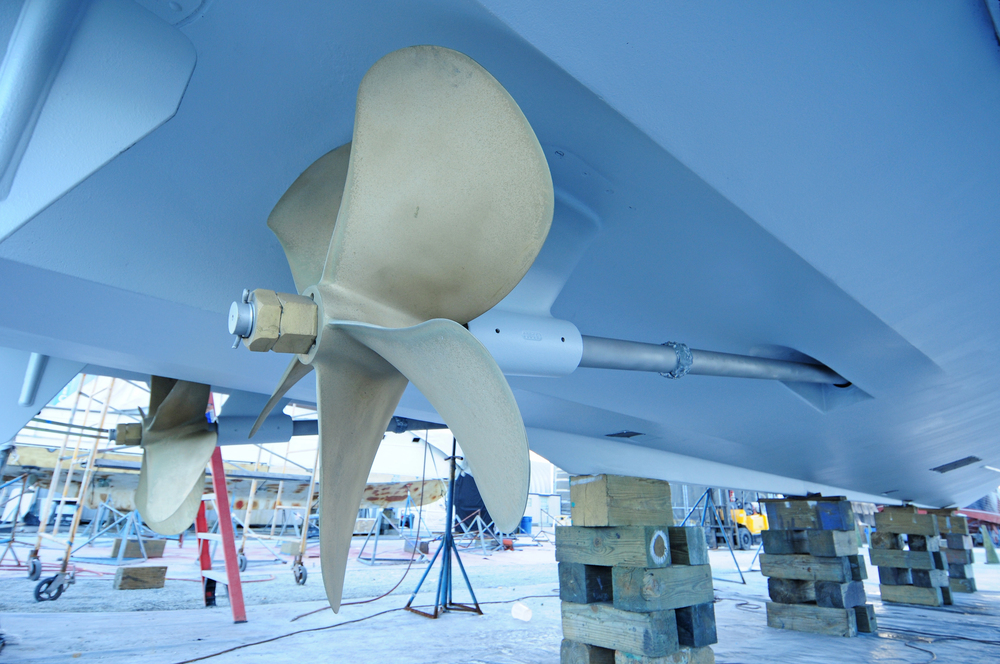Marine vessel and dock owners in Florida often seek effective ways to maintain their property while preserving the delicate ocean ecosystem. Keeping the hull of a vessel clean presents a significant challenge for many owners who worry about environmental impact. Discovering the best way to clean the hull of your vessel to protect the environment becomes a top priority for responsible stewardship.
Why Eco-Friendly Hull Cleaning Matters for Marine Life
Eco-friendly hull cleaning methods protect a diverse array of marine organisms that inhabit Florida’s coastal waters. Traditional cleaning techniques often release harmful chemicals and invasive species into sensitive aquatic environments, disrupting natural ecosystems. Preserving the delicate balance of marine life supports healthy fish populations and vibrant coral reefs essential for the region’s biodiversity.
Adopting responsible cleaning practices directly contributes to the long-term health and sustainability of our precious oceans for future generations. These conscious efforts demonstrate a commitment to environmental protection.
How Traditional Hull Cleaning Methods Harm the Environment
Traditional hull cleaning methods frequently employ harsh chemicals and abrasive techniques that cause significant environmental damage to marine habitats. Many antifouling paints contain copper and other heavy metals, which leach into the water during scrubbing, harming marine plants and animals.
High-pressure washing can also dislodge entire communities of organisms, including non-native species, allowing them to spread and become invasive in new areas. These practices contribute to water pollution and disrupt the delicate ecological balance necessary for healthy oceans. Responsible owners seek alternatives.
Best Practices for Cleaning Your Vessel Hull Safely
Maintaining your vessel’s hull in an environmentally sound manner requires careful consideration and the adoption of specific best practices. Choosing the right approach helps protect marine ecosystems while effectively removing unwanted growth. Employing these methods ensures a clean hull without compromising the health of the surrounding waters. Here are effective strategies:
- Manual Scrubbing: Manual scrubbing involves using soft brushes or non-abrasive pads to gently remove fouling from the hull’s surface. This method minimizes the release of harmful chemicals and prevents damage to the antifouling coating. Divers often perform this task, allowing for precise and targeted cleaning of specific areas. Regular manual scrubbing reduces the buildup of marine growth, making subsequent cleanings easier and less intensive. This approach significantly lessens the environmental impact.
- In-Water Cleaning Systems: Advanced in-water cleaning systems utilize specialized equipment that captures debris and prevents it from dispersing into the marine environment. These systems often incorporate vacuums or filtration mechanisms to collect paint particles, marine organisms, and other residues removed during the cleaning process. The collected waste undergoes proper disposal, preventing pollution and the spread of invasive species. Employing such technology represents a proactive step toward responsible vessel maintenance.
- Scheduled Haul-Outs: Regularly scheduling haul-outs allows for thorough hull cleaning in a controlled environment on land. During a haul-out, the vessel is removed from the water, allowing for comprehensive cleaning and inspection of the hull. This method prevents the discharge of cleaning byproducts directly into the marine ecosystem. Waste materials are properly contained and disposed of, ensuring no environmental contamination occurs from the cleaning process. This practice offers a highly effective and environmentally sound solution for hull maintenance.
- Preventative Coatings: Applying high-performance, eco-friendly preventative coatings to the hull actively reduces the need for frequent aggressive cleaning. These innovative coatings create a slick surface that deters the attachment of marine growth, such as barnacles and algae. Vessels with these advanced coatings maintain their speed and fuel efficiency for longer periods, reducing drag. Investing in these protective measures minimizes the overall environmental impact associated with recurring hull maintenance efforts.
Choosing Biodegradable Cleaners for Effective Hull Maintenance
Selecting biodegradable cleaners represents a vital step towards eco-friendly hull maintenance practices for all vessel owners. These specialized cleaning agents break down naturally in the environment, reducing their persistence and preventing harm to marine life.
Unlike conventional cleaners, which often contain harsh chemicals, biodegradable options use plant-based or naturally derived ingredients. They effectively remove dirt, grime, and light fouling without introducing toxic substances into the water. This conscious choice significantly minimizes the ecological footprint associated with routine vessel upkeep.
Benefits of Regular Hull Cleaning for Fuel Efficiency
Regularly cleaning your vessel’s hull provides numerous advantages, most notably a significant improvement in fuel efficiency for marine operators. Keeping the hull free of marine growth, such as barnacles and algae, directly reduces hydrodynamic drag, allowing the vessel to move through the water with less resistance. This translates into lower fuel consumption, leading to substantial cost savings over time. Furthermore, improved fuel efficiency lessens the carbon footprint of your vessel, contributing to a healthier planet. Here are specific benefits:
- Reduced Drag: A smooth, clean hull experiences significantly less drag as it moves through the water compared to a fouled one. Marine growth creates a rough surface that increases friction, forcing the engine to work harder to maintain speed. By eliminating this resistance, your vessel glides more easily, requiring less power to propel it forward. This direct reduction in drag is a primary contributor to enhanced fuel efficiency, benefiting both your wallet and the environment.
- Optimized Performance: Maintaining a clean hull ensures your vessel performs at its optimal level, as designed by the manufacturer. Fouling not only affects fuel consumption but also impacts speed, maneuverability, and the overall responsiveness of the vessel. When the hull remains free of obstructions, the vessel maintains its intended operational characteristics. This allows for more efficient and enjoyable navigation, ensuring your vessel consistently delivers the performance you expect on the water.
- Lower Operating Costs: The most tangible benefit of regular hull cleaning for many owners comes from the significant reduction in operating costs. Decreased fuel consumption directly translates into lower expenses at the pump, resulting in savings on every trip. Furthermore, reducing engine strain due to less drag can extend the lifespan of your propulsion system, minimizing maintenance and repair costs over the long term. These combined savings make regular, eco-friendly hull cleaning a financially wise decision.
- Environmental Impact: Beyond the financial savings, improved fuel efficiency from a clean hull also offers substantial environmental benefits. Burning less fuel means releasing fewer greenhouse gases and pollutants into the atmosphere, contributing to cleaner air and a healthier climate. Responsible vessel owners understand that minimizing their carbon footprint supports broader conservation efforts. This commitment to sustainable practices makes a positive difference for both local and global ecosystems.
How Often Should You Clean Your Vessel Hull Properly
The frequency of proper hull cleaning depends on several factors, including the type of vessel, its usage patterns, and the water conditions in its usual operating area. Vessels moored in warm, nutrient-rich waters, like those in Florida, often require more frequent attention due to faster marine growth. Boats used regularly generally accumulate less fouling than those that sit idle for extended periods. Regular inspections help determine the ideal cleaning schedule.
How to Dispose of Hull Cleaning Waste Responsibly
Responsible disposal of hull cleaning waste protects marine environments from harmful contaminants. All removed marine growth, paint flakes, and cleaning residues must undergo proper containment and disposal, preventing their re-entry into the water. Collecting waste in specialized filtration systems or containment booms during in-water cleaning processes helps prevent the dispersion of pollutants. Land-based cleaning operations require the collection of all debris for proper disposal at designated waste facilities, in accordance with local regulations.
Long-Term Cost Savings of Eco-Friendly Hull Maintenance
Adopting eco-friendly hull maintenance practices delivers significant long-term cost savings for marine vessel and dock owners. While initial investments in sustainable methods may seem higher, the reduced need for aggressive cleaning and the extended lifespan of hull coatings result in considerable financial benefits.
Preventing excessive fouling minimizes fuel consumption, directly lowering operational expenses over the years of vessel use. These environmentally conscious choices yield both economic and ecological dividends.
Hull 2 Prop: Professional Hull Cleaning Services in Florida
At Hull 2 Prop, we offer an engaging solution for all your vessel maintenance needs. We deliver unparalleled professional hull cleaning services in Florida, ensuring your vessel maintains peak performance while protecting the delicate marine environment.
Our experienced team uses advanced techniques and environmentally safe products to effectively remove biofouling without harming marine life. Choose Hull 2 Prop as your trusted partner for eco-conscious boat maintenance experts, sales in Florida, and contribute to a healthier ocean for everyone.


